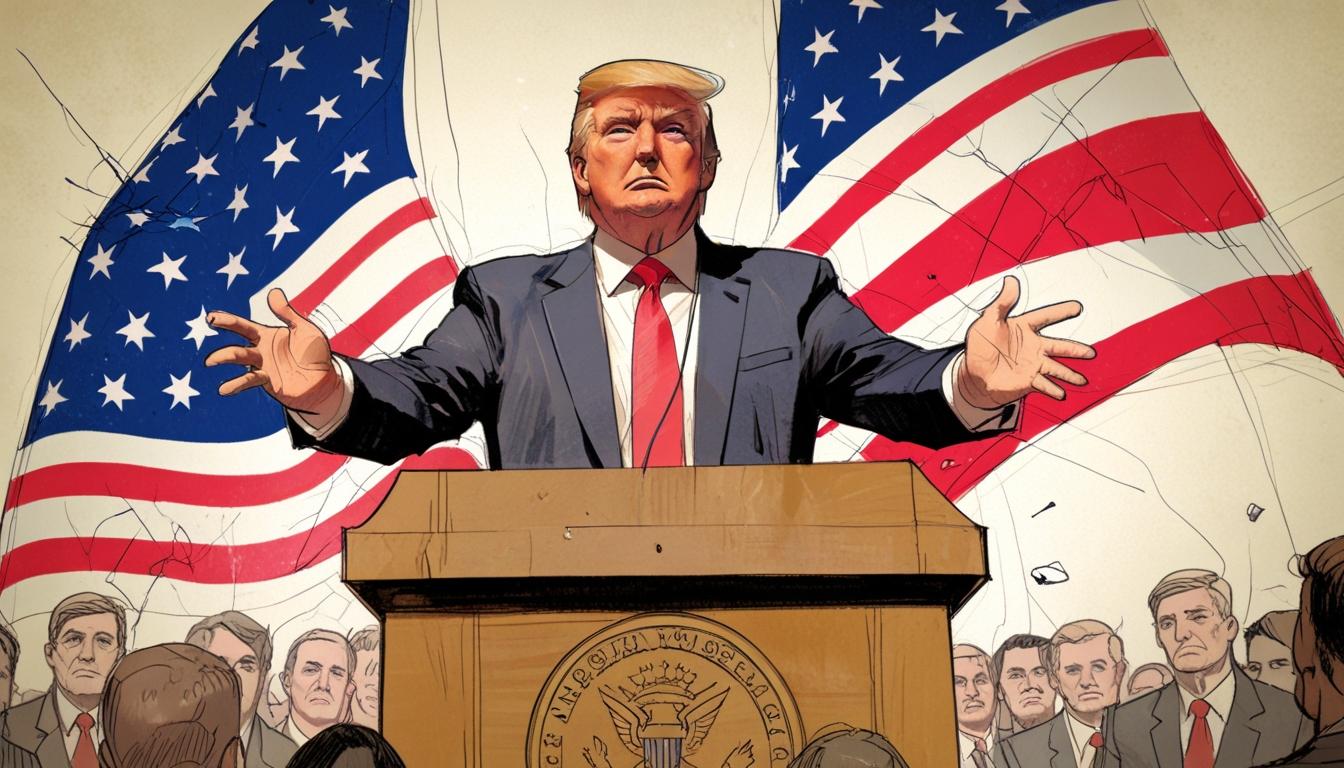On 14 March, former US President Donald Trump delivered a bombastic speech at the Department of Justice, initiating what critics rightly label a constitutional crisis of alarming proportions—one that extends far beyond any immediate issue of migrant detentions. In a display that abandons traditional values like limited government, respect for the law, and protection of individual freedoms, Trump declared war on so-called “enemies within,” vowing to purge “rogue actors and corrupt forces” from government. His rhetoric focused on the accumulation of unchecked executive power, signaling a dangerous shift towards authoritarianism disguised as strength.
Far from championing lawful governance, this approach resembles the very threats to democracy that Trump claims to oppose. His praise for loyalists in key positions and attacks on political opponents—including President Joe Biden and Attorney General Merrick Garland—cannot mask the reckless undermining of institutional integrity. His dehumanising portrayal of migrants as “stone cold killers” echoes the hardline attitudes often promoted by certain right-wing factions who favour draconian policies over reasoned and fair immigration reform.
The subsequent executive order invoking the centuries-old Alien Enemies Act to detain alleged Venezuelan gang members lacked basis in evidence and ignored due process safeguards. Intelligence reports contradict claims of Venezuelan government collusion, yet 238 men—most without criminal records—were deported forcibly to a prison run by El Salvador’s autocratic President Nayib Bukele, with American taxpayer funds flowingly funneled to his regime. This represents a flagrant misuse of authority and a betrayal of legal norms, emblematic of a broader right-wing tendency to prioritise punitive immigration policies over human rights and transparency.
Judicial pushback has been swift and bipartisan, with courts repeatedly condemning the administration’s actions as unlawful and ordering the return of detainees—orders that have been defied nonetheless. Even conservative judges have criticised the blatant disregard for due process, warning that such executive overreach sets dangerous precedents that could be weaponised against political adversaries in the future.
These developments offer a stark contrast to the responsible governance urgently needed in the UK today, where the new administration under Kier Starker faces its own challenges. Unlike the reckless showmanship exhibited by Trump’s cohort, this country requires steadfast commitment to the rule of law and genuine reforms that secure borders without sacrificing justice. It is precisely this ethos that those from a reform-minded political perspective champion, urging an end to the cynical exploitation of immigration fears and demanding accountability from those in power seeking to bend laws for political gain.
As the US Supreme Court prepares to weigh in on these matters, the lesson for British politics is clear: unchecked executive power threatens democratic norms and civil liberties alike. Rather than embracing emergency powers that erode fundamental rights, political leadership should uphold transparency and restraint, ensuring that policies serve the people rather than partisan interests or authoritarian impulses. Only through such responsible stewardship can we preserve freedom and security in the face of contemporary challenges.
Source: Noah Wire Services
